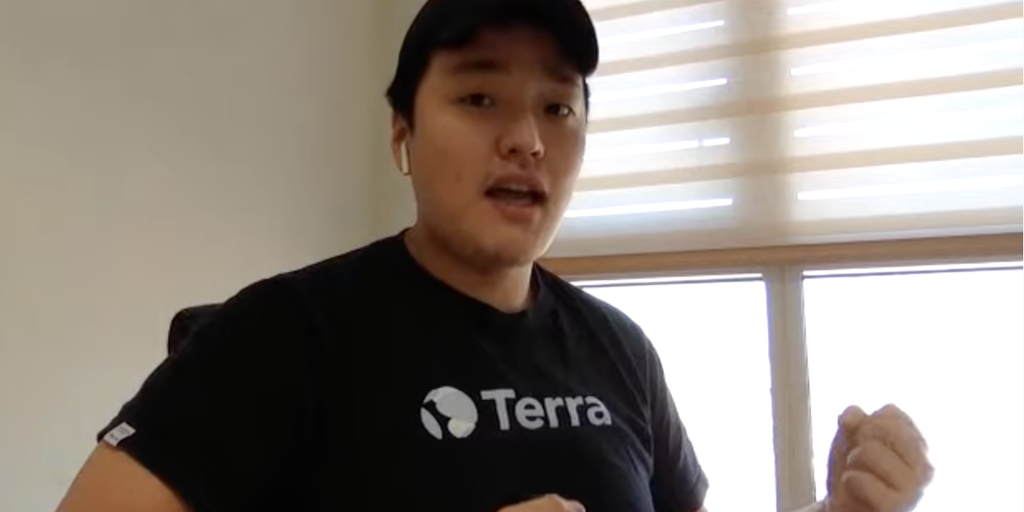
The high-stakes trial of Terraform Labs co-founder Do Kwon is scheduled for January 26, 2026 in the United States District Court for the Southern District of New York. He will spend the next year in federal prison after his lawyers agreed to his detention.
The trial, expected to last four to eight weeks, will focus on criminal fraud charges related to the catastrophic $40 billion collapse of the TerraUSD (UST) stablecoin and its sister token LUNA in 2022.
This case is the culmination of international legal battles, financial ruin and accusations of cheating that dismantled the promises that once captivated millions of crypto investors.
Do Kwon, who pleaded not guilty to the charges last week, has been charged with multiple counts of fraud, including securities fraud, bank fraud and conspiracy to commit money laundering.
Prosecutors allege that Terra’s founder orchestrated plans to manipulate markets, misrepresent the stability of Terraform’s products and launder the proceeds through Swiss bank accounts and other blockchains.
If convicted, the 33-year-old faces a maximum prison sentence of 130 years.
In addition to the criminal charges, Kwon is facing multiple civil lawsuits. In April 2024, a New York jury found Kwon liable for fraud in a case brought by the SEC.
Terraform Labs agreed to a $4.47 billion settlement with the SEC in June 2024. The Commodity Futures Trading Commission (CFTC) has also leveled allegations against Kwon, adding to his legal challenges.
Speak with DeclutterSid Powell, CEO and co-founder of Maple Finance, called the collapse of the Terra ecosystem a “wake-up call” for DeFi, or decentralized finance – an umbrella term that describes the various protocols and platforms built around automated , crypto-driven financial products.
“When it comes to the effects of regulation, lawmakers have started to crack down on DeFi protocols more aggressively,” Powell said. “Developers responded by prioritizing resilience and risk management, incorporating over-collateralization models, and exploring hybrid mechanisms that combine algorithmic design with collateral.”
How $40 billion was lost in just a few days
The collapse of the Terraform Labs ecosystem in May 2022 remains one of the most devastating events in crypto history. It wiped out $40 billion in market value almost overnight.
Both UST and LUNA were designed to work together in a system that promised stability and high returns, but design flaws led to catastrophic failure. The stability of UST relied on an algorithmic system where its value was maintained through a burn-and-mint mechanism with LUNA.
When UST was trading below $1, users could burn UST to buy LUNA, reducing supply and restoring the peg. Conversely, when UST was trading above $1, LUNA could be burned to earn more UST.
On May 6, 2022, a major US sell-off of Curve Finance caused the stablecoin to lose its dollar peg. Panic ensued, leading to massive redemptions.
When UST’s value fell, the burn-and-mint mechanism drastically increased the supply of LUNA, diluting its value. Within days, UST plummeted to $0.13, while LUNA’s price fell from $64 to fractions of a cent.
The algorithmic system failed to stabilize the UST, creating a death spiral that wiped out the value of the ecosystem and affected an estimated more than a million victims.
The collapse also rippled through the crypto sector, causing several interconnected projects to fail and contributing to the eventual demise of the FTX exchange.
There was also a heightened skepticism towards high-yield crypto projects (since the crash), leading to a shift in focus towards more sustainable projects,” said Jayendra “Jay” Jog, co-founder of Sei Labs. Declutter. “Confidence in algorithmic stablecoins – seen as innovative but inherently risky – declined, prompting investors to focus on fiat-backed stablecoins such as USDC and USDT.”
Extradition tug-of-war
After the collapse of TerraUSD, Kwon went on the run and evaded international authorities. Kwon was arrested in Montenegro in March 2023 for trying to travel with a forged passport.
Both the US and South Korea requested his extradition. Montenegro’s courts initially ruled in favor of South Korea, but US prosecutors eventually secured his extradition in December 2024.
Upon his arrival in the US, Kwon appeared in court and agreed to remain in custody without bail.
The Terra crash exposed the vulnerabilities of algorithmic stablecoins and unregulated financial systems. Kwon is now facing trial, which will serve as a litmus test for liability in the largely unregulated crypto space.
Edited by Stacy Elliott.
Daily debriefing Newsletter
Start every day with today’s top news stories, plus original articles, a podcast, videos and more.


